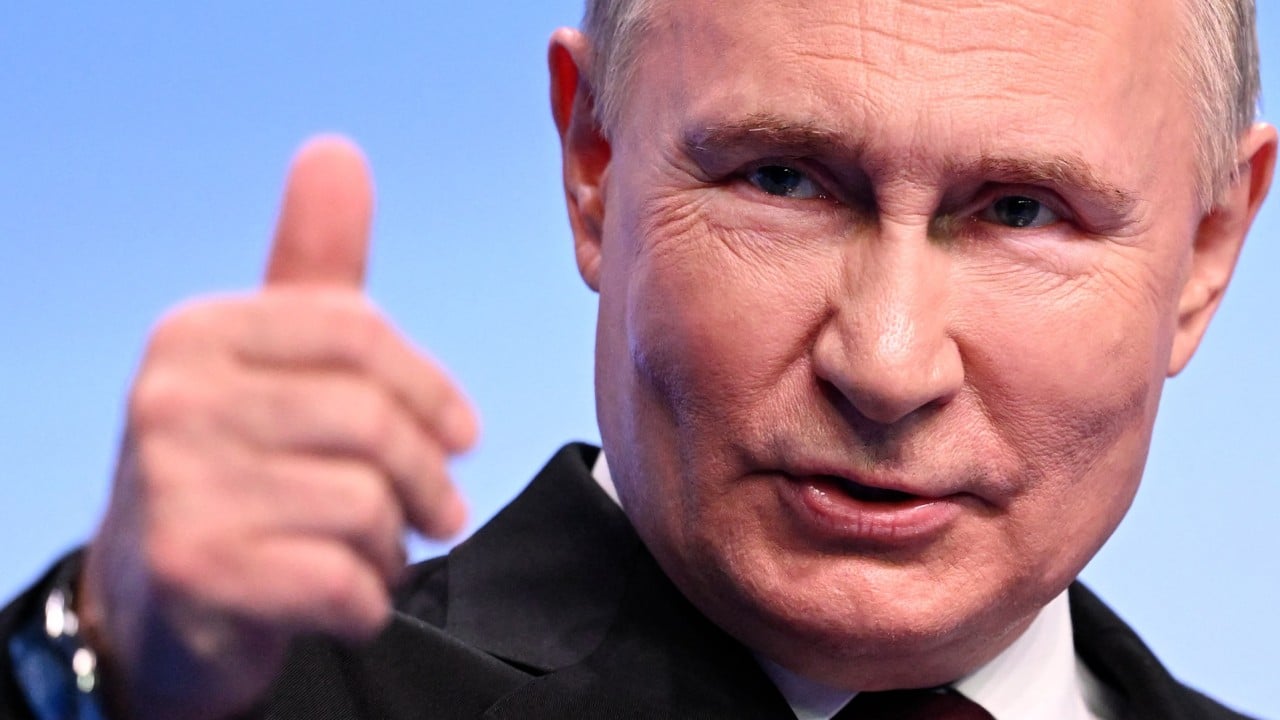
Will Putin’s China visit help re-energise a dormant pipeline project?
- Russian President Vladimir Putin is expected to bring up the signature Power of Siberia 2 pipeline on a coming China visit
- Progress has been slow, with China’s Russia ties coming under heavy scrutiny from US and EU; analysts say delays show China putting own interests first
The natural gas pipeline, designed to connect Russia and China via Mongolia, is a signature project symbolising the “no-limits” strategic partnership between Beijing and Moscow. If completed, it would divert 50 billion cubic metres (1.8 trillion cubic feet) of natural gas per year to north China, redirecting a supply that once went to Europe.
Any progress in the project would be an effective gauge of the state of their bilateral relations, carefully scrutinised by the European Union and United States since the outbreak of war in Ukraine and a potential trigger point for new rounds of sanctions.
“It’s the elephant in the room”, said a Russian source who has knowledge of the issue and requested anonymity due to the project’s sensitivity.
Within Russia, the project continues to be a subject of ample attention – and some anxiety. News agency IA REX said on Wednesday that the project “remained in the shadows”, citing speculation that “Beijing did not need the project” or there were disagreements over price.
Munkhnaran Bayarlkhagva, a former official at Mongolia’s National Security Council, said discussion on construction of the Power of Siberia 2 is in “a weird limbo”.
“I haven’t noticed anyone from the Mongolian political class make any recent comments on the pipeline,” he added, noting that June’s parliamentary election is fast approaching.
I believe that the construction of the Power of Siberia 2 will develop according to the domestic needs of China
Ulaanbaatar is widely believed to be apprised on any developments in the project, as the pipeline must pass through the country.
“Around the New Year the Russian side changed the entire governmental team that was dealing with Mongolia, so maybe they are getting used to their new positions,” he said.
The Chinese side has stayed mostly silent on the topic. On Tuesday, Chinese ambassador to Russia Zhang Hanhui told Russian media RIA Novosti that companies from the two countries are “actively discussing the details”, and Beijing advocates an integrated approach on pipeline operations, from production to processing.
“The government always increases the natural gas strategic reserve, even when demand is low,” she added. “China is [also] experiencing a transformation to green energy, such as solar, wind and water.”
Figures from the Spanish bank showed that China’s total gas consumption was 394.53 billion cubic metres last year, and its annual usage is projected to reach 550 to 600 billion cubic metres by 2030.
While Beijing and Moscow are still negotiating specific details, Kazakhstan’s envoy to Russia Dauren Abayev said in early May that Russia was planning to send about 35 billion cubic metres of natural gas per year to China via his country.
David Zweig, professor emeritus at the Hong Kong University of Science and Technology, said that “Russia will find ways to deliver the gas” to China.
But Li of the Shanghai Academy of Social Sciences said that progress in routing gas through Kazakhstan will not be as quick as expected.
“Kazakhstan will be worried about Western energy sanctions on Russia,” he noted, “and concerned about secondary sanctions.”


